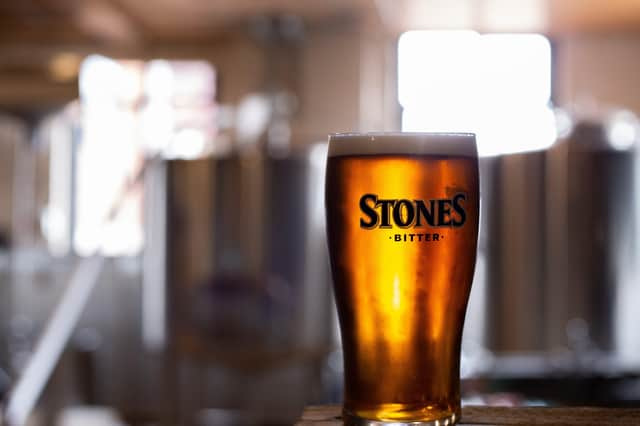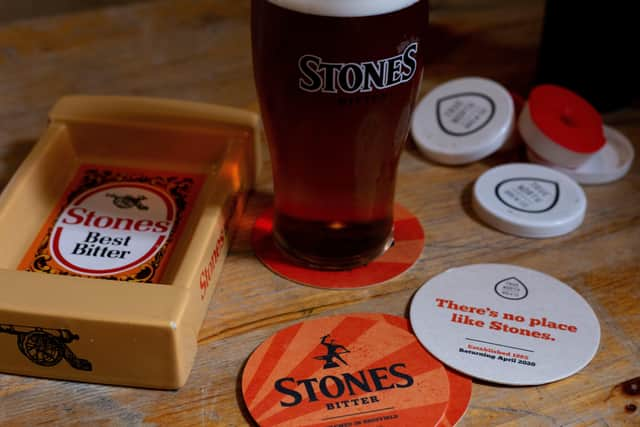Stones Bitter goes back on sale in Sheffield, but it’s not the brew you remember


But the craft brewery responsible for bringing Stones Bitter back to Yorkshire hoped that its revival would evoke an earlier era altogether – when the sulphur-like smell of fermenting hops wafted through the streets of north Sheffield.
Once Britain’s best-selling beer, by dint of the vast tied pub estate of Bass, then its owner, Stones was familiar even to non-drinkers, through a series of brash and oft-imitated TV commercials.
Advertisement
Hide AdAdvertisement
Hide AdIt never truly went away – the keg version is still brewed in Tadcaster by Molson Coors, the American multinational that now owns the brand name, and sold in supermarkets.


But the “proper” pint, cask conditioned and brewed to a recipe formulated to replenish the salt levels in steelworkers sweating from the Sheffield foundries, has not been made for three decades.
Its revival created a marketing conundrum for the True North Brew Company in Sheffield, which was approached by Coors.
“We know there will be a bit of work to do,” said Dean Hollingworth, the head brewer. “A lot of people won’t remember the cask version and they’ll have bad memories of the keg one. It will be a journey back in time for the taste buds.”
Advertisement
Hide AdAdvertisement
Hide AdStones Bitter was invented after the Second World War and turned out from the Cannon Brewery in Sheffield’s Neepsend district.
“The Stones yeast was known for the eggy, sulphury flavour it gave off. You could smell it all over Neepsend when it was brewing back in the day,” Mr Hollingworth said. “There was quite a lot of residual sugar – it was an early day Lucozade that would restore the salt that steel workers had lost. They would pile out of the foundries at lunchtime, drink three or four pints and go back to work.”
The old Cannon Brewery is disused now, but Mr Hollingworth consulted former workers there in formulating his new recipe – a very different one to the force-carbonated keg beer that induced was known in Sheffield as “muggy head”, he said.
“It was brewed warmer to produce faster. Keg beers had a longer shelf life which is what the breweries liked. It was more profitable for them to make keg beers which lasted a few weeks than cask ales which had to be kept right and sold quickly.”
Advertisement
Hide AdAdvertisement
Hide AdMost imbibers could choose only between a Stones pub or a Tetley’s house, he added. “They were the big two powerhouses – two huge, tied estates. There weren’t too many others. As keg beers became more popular it caused the decline of cask ales.”
His new brew would be judged on results, he acknowledged, but he added: “There’s a lot of nostalgia out there for it.”
The popularity of Stones Bitter in its heyday may have been its undoing – as its owner saved money by reducing its alcohol content.
“Bass were selling so much of it they dropped the ABV to from 4.1 per cent to 3.7 to lower their duty payments,” Mr Hollingworth said. “They’d been paying £1m a day just in beer duty.”
The new version, restored to its original strength, will go on sale at Sheffield’s Riverside Kelham pub from April 2 for a trial run.
Comment Guidelines
National World encourages reader discussion on our stories. User feedback, insights and back-and-forth exchanges add a rich layer of context to reporting. Please review our Community Guidelines before commenting.